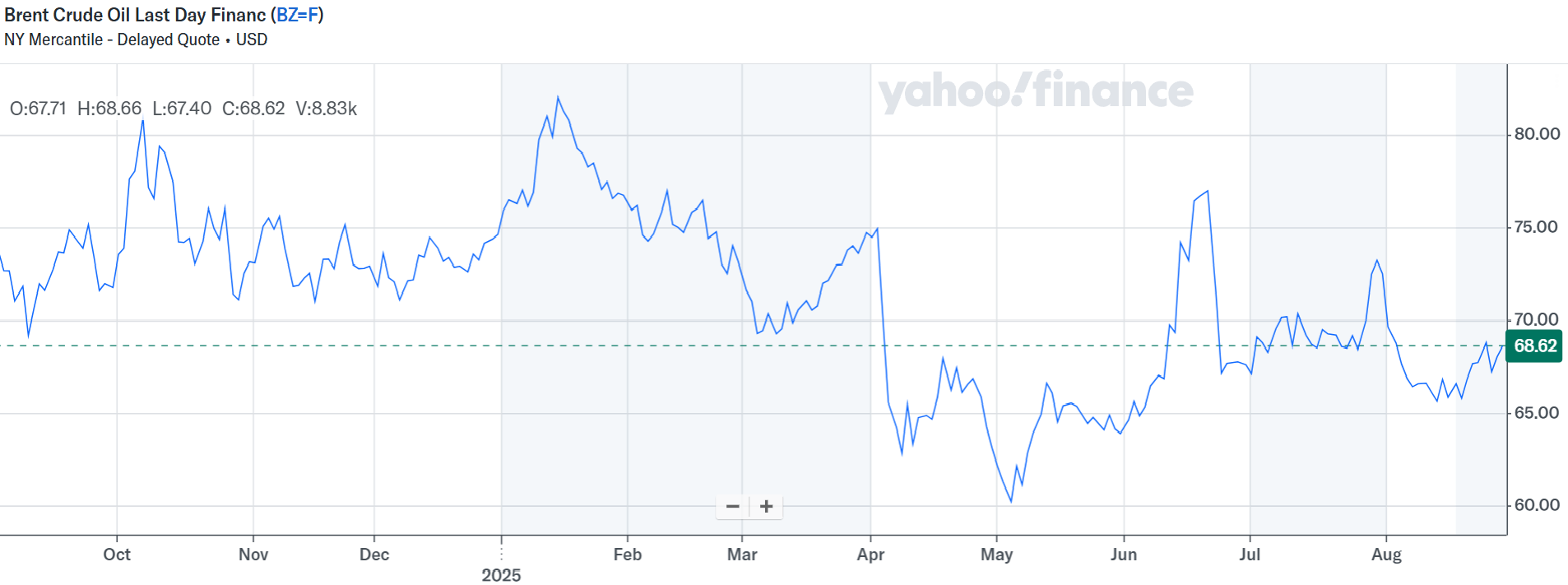
Source: Yahoo Finance
Profits Crushed by a Price Slump
Rosneft, Russia’s biggest oil producer, has reported a dramatic drop in profits. Its net income fell by more than 68% in the first half of the year to 245 billion roubles, roughly $3 billion. Chief executive Igor Sechin pointed to falling oil prices as the main culprit.
He blamed a wave of production increases by leading OPEC countries, namely Saudi Arabia, the UAE, Iraq, and Kuwait, for flooding the market and driving prices lower.
OPEC+ Strategy
For years, OPEC+ kept oil production in check to stabilize prices. But earlier this year, the group reversed course. Under pressure to regain market share and with calls from Washington to pump more oil, OPEC and its allies boosted output faster than planned.
According to some analysts, these steps have been taken after China and India increased imports of discounted Russian oil. Hence, OPEC countries and the US, as well as Ukraine, are benefiting from the diminished profits of Russian oil companies.
Sechin, who has long been sceptical about Russia’s cooperation with OPEC, warned that the strategy has created a production oversupply. Rosneft now expects a global surplus of 2.6 million barrels per day in the fourth quarter, easing only slightly in the coming years.
Ukraine Brings the War to Energy
While production policy weighs on prices, Russia’s war in Ukraine is adding new risks. Ukrainian strikes on Russian energy infrastructure, including oil depots and refineries deep inside Russian territory, are aiming to cripple logistics and exports.
So far, the direct impact on global supply has been limited, with 17 % of Russian refining capacity disrupted. However, the attacks inject massive uncertainty into markets and could force Russia to rethink how and where it sells its oil since gasoline export embargos have been put into place after a surge or even unavailability of some types of fuels.
Monetary Policy Adds Another Layer
Rosneft’s criticism is not only international. At home, Sechin is critical of Russia’s central bank. High interest rates have kept the rouble strong, which curbs inflation but also makes Russian oil less competitive abroad. When global prices are falling, a firm currency squeezes exporters even harder, leaving producers like Rosneft with shrinking revenues on both fronts.
An Uncertain Path Forward
OPEC+ now faces a balancing act. Pump too much oil and prices drop, hurting budgets. Pump too little and rivals, especially Russia, keep grabbing market share. For Russia, already under heavy sanctions, the stakes are even higher.
Global oil markets are being reshaped by more than just supply and demand. Warfare, financial policy, and political maneuvering now collide with traditional energy economics. For Rosneft and its peers, the challenge is no longer only about pumping oil but about navigating a world where every barrel is caught between markets, politics, and conflict.







.jpg)
